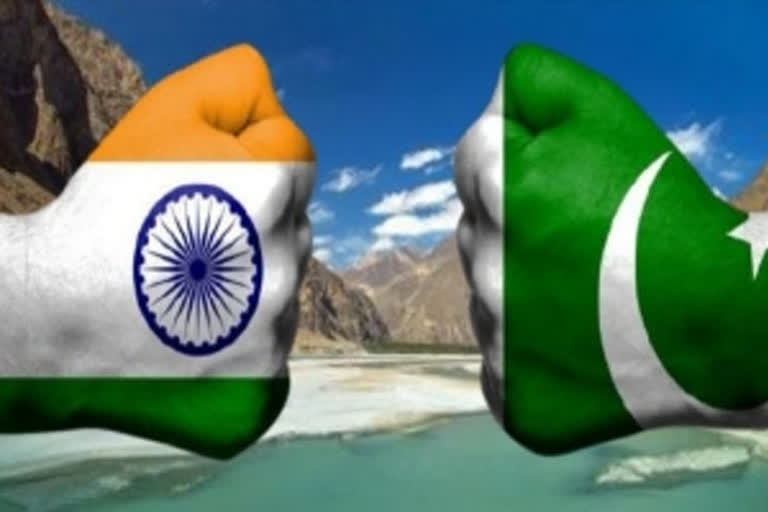New Delhi: An Indian and Pakistani army joint statement on a ceasefire pact on Thursday afternoon surprised many. But it needn’t. After ‘peace’ at the Pangong Tso, the India-Pak military pact was on the cards.
While all eyes and ears were riveted on the northern front along the Line of Actual Control (LAC) with China, hotline telephonic conversations between the Indian and Pakistani DGMOs (Director General of Military Operations) Lt Gen Paramjit Singh Sangha and Major Gen Nauman Zakaria had yielded a pact.
Also Read: Sino-India disengagement process in eastern Ladakh complete, says Rajnath Singh
The statement on Thursday read: “In the interest of achieving mutually beneficial and sustainable peace along the borders, the two DGsMO agreed to address each other’s core issues and concerns which have propensity to disturb peace and lead to violence. Both sides agreed for strict observance of all agreements, understandings and cease firing along the Line of Control and all other sectors with effect from midnight 24/25 Feb 2021.”
Seemingly a bolt from the blue, it was nevertheless expected. After all it is unimaginable that India and China are taking steps to usher in peace in eastern Ladakh but guns are booming across the Line of Control (LoC) with Pakistan.
Also Read: Restoration of trust between India, China will take time: Defence analyst
That brings us to the core of what the India-China military agreements that the ten rounds of talks in Chushul-Moldo have yielded, because military-diplomatic agreements are substantial in what they conceal rather than what they reveal.
ETV Bharat while speaking to several top military sources had hinted that there may be many points in the India-China military pact that remain classified, possibly including certain agreements relating to the Belt and Road Initiative (BRI).
From the tactical point of view, it was rather puzzling as to why Indian chose to vacate the dominating heights on the southern bank of the Pangong Tso that it had occupied on August 29-30, 2020.
Also Read: India, Pak agree for strict observance of all LoC agreements
Why it made sense to Pakistan
Pakistan may have seen the obduracy and grit with which the India forces stood up to the PLA. Not to speak of certain military masterstrokes, the determination to stay on in extremely hostile terrain amid the brutal winter and face up to the Chinese may have revealed a lot about the soldiers’ character.
Pakistan is already facing a lot of global flak for harbouring terrorists and militants of different hues and colours. Already under the searchlight of the Financial Action Task Force (FATF), Pakistan has realized it has been done no good.
Most importantly, it may have been ‘iron brother’ China’s prodding to ink a ceasefire pact.
Also Read: India signs USD 50 million defence LoC agreement to boost maritime capabilities of Maldives
Why it made sense to India
The border standoff with China had put the LoC-LAC ‘triangulation’ in a state of disarray for India. It made sense to have settled borders rather than unsettled ones—something Army chief General Manoj Mukund Naravane eloquently expressed in a webinar on Wednesday in New Delhi.
“With our continuous engagement with Pakistan, we will be able to prevail over them (for border peace)...as unsettled borders help no one,” he had said.
With the winter snow beginning to melt at the heights of the LoC, it was just a question of time before militants waiting across the border began to mount infiltration attempts. With a lot of Indian security forces having deployed to the LAC from the LoC, it made sense to open channels of communication with the Pakistan military.
What would obviously make sense to both India and Pakistan is the avoidable collateral damage to the civilian populace on both sides due to the continuous and heavy shelling that has spiked up in recent times.
This year, there were 299 ceasefire violations (CFVs) till January 28, 2021. In 2017, there were 971 CFVs, 1,629 incidents in 2018, 3,168 in 2019, which jumped to 5,133 instances in 2020.
Also Read: India slams Pak at UNSC, calls for global fight against terror



